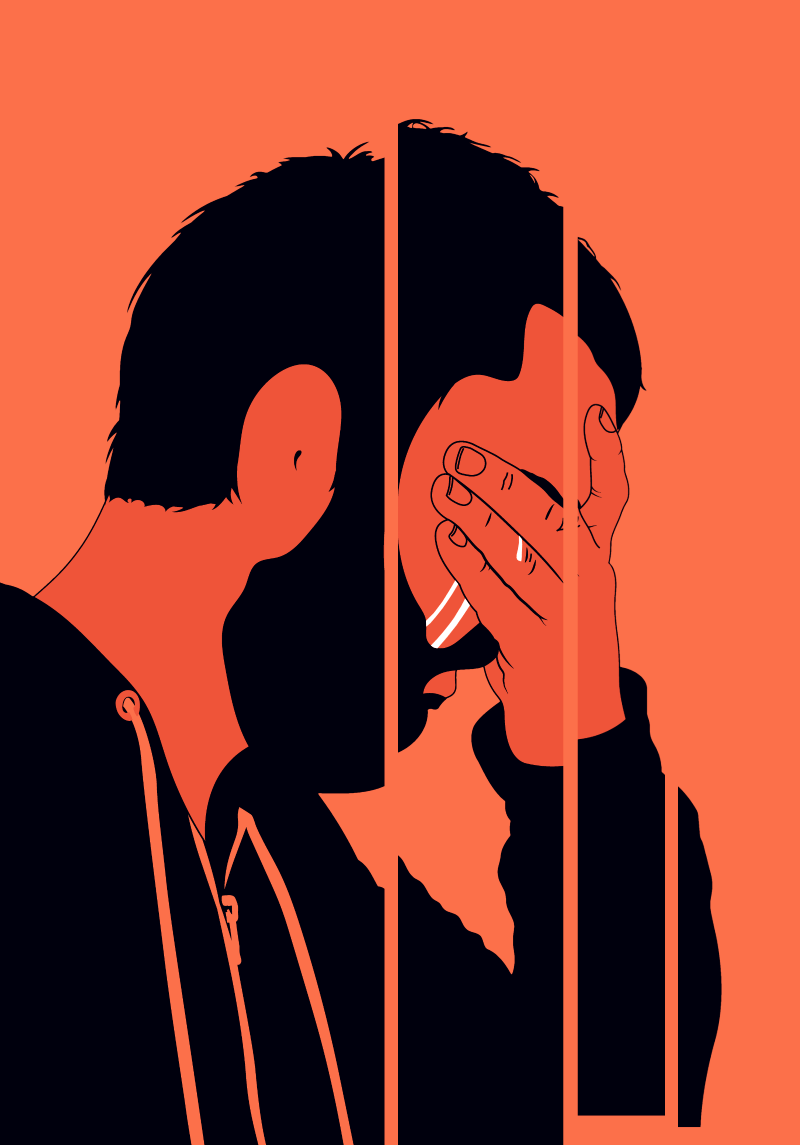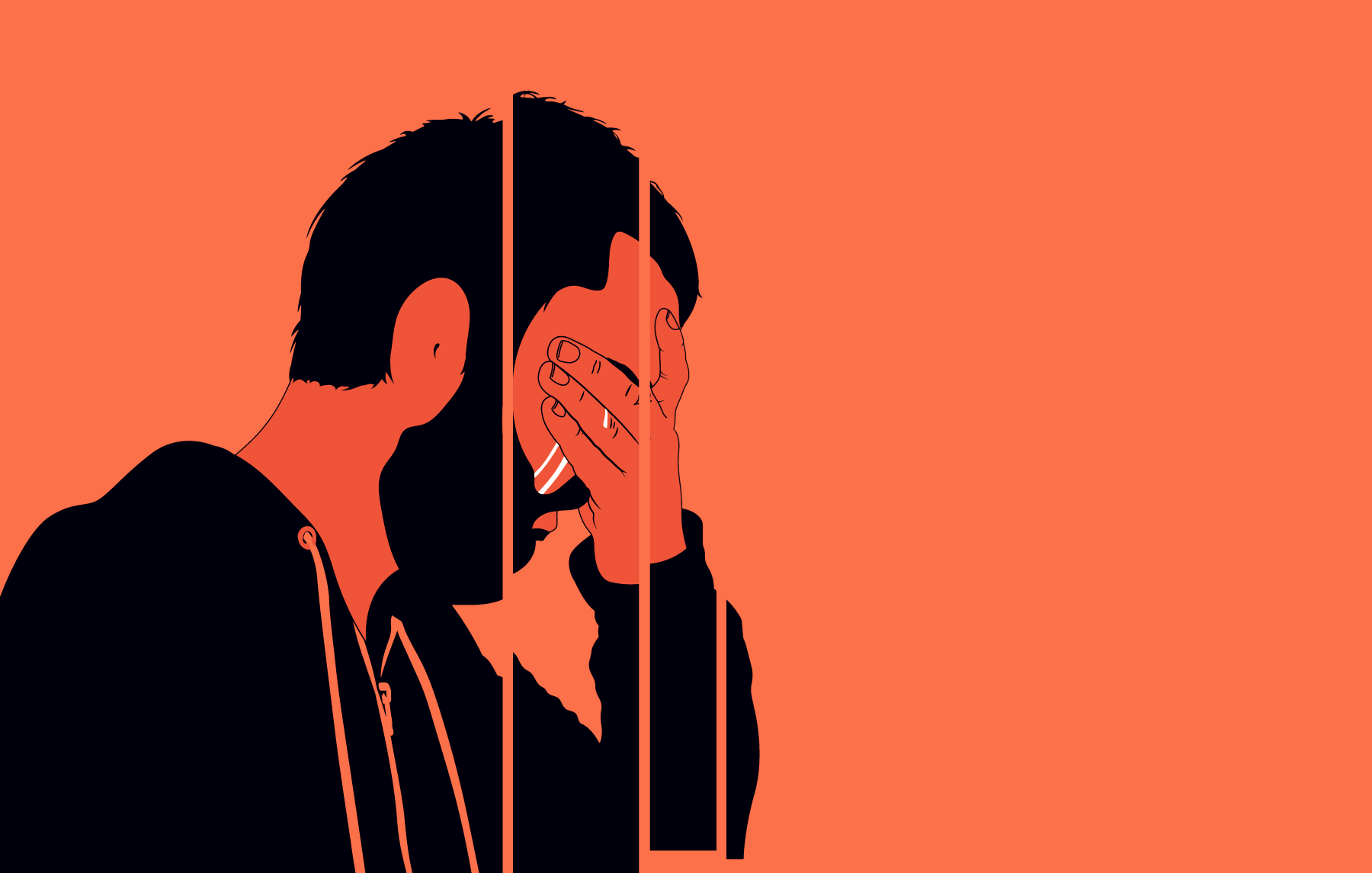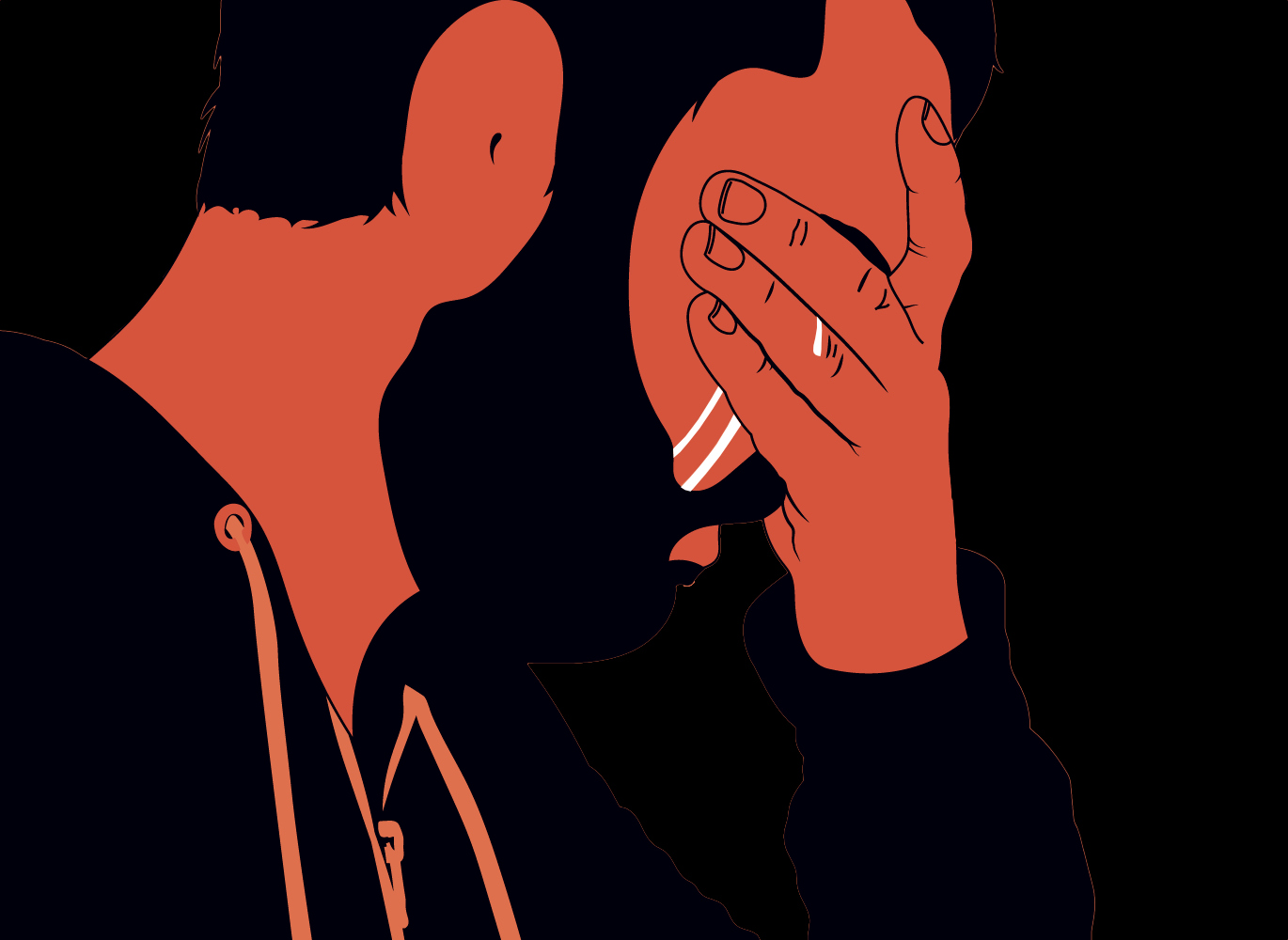“
By cutting off access to our pain, we also restrict access to joy, which contributes to the all-too-familiar phenomenon of the apathetic modern dude.”
Learning to experience our full range of emotions is liberating


Learning to experience our full range of emotions is liberating

I was a 22-year old student, fresh off my father's suicide and hungover from a heroic night of drinking, when I experienced that classic therapy line for the first time: at my college's health center, I slouched uncomfortably across from a therapist who eyed me gently and asked: “How does all of this make you feel?”
Like most young men when confronted with that question, I balked. As a kid, I became convinced that feelings could get me killed or, at the very least, ostracized. The few times I cried on the baseball field had left their mark indelibly—public shows of feeling were a bad idea. Better to keep that shit secret and deep underground. So I walked out of the therapist's office that day, and didn't return. In fact, I would manage to avoid my feelings for another decade. More on how that turned out later.
Life coaching isn't psychotherapy, but inevitably when we set out to tackle our grandest visions for our lives we're going to encounter certain barriers. For most men, one of these barriers is our feelings: experiencing them, expressing them, or being aware we have them at all. Sam Keen, in his fantastic book Fire in the Belly: On Being a Man, writes: “Most of us learned that real men were supposed to control their feelings, work hard, take a lot of punishment and not bitch about it ... But by doing the 'manly' thing, we forced most feelings into exile in our unconscious.”
“
By cutting off access to our pain, we also restrict access to joy, which contributes to the all-too-familiar phenomenon of the apathetic modern dude.”
The forcing down process we learn as boys becomes practically automatic as we age. Anything uncomfortable gets repressed. And to hold down our accumulated feelings, our body has to work harder, grip tighter and become more constricted. Many men will be familiar with a particular tightness in their chest, shoulders, stomach or jaw. These are sure signs of exiled emotions. And show me one of the millions of men who suffer from anxiety, depression and addiction and I will show you a man who has been waiting his whole life to cry, to rage—to let out decades of what he felt he could never express.
It's not just “negative” emotions that get exiled, either. By cutting off access to our pain, we also restrict access to joy, which contributes to the all-too-familiar phenomenon of the apathetic modern dude. He's doing fine, floating along, but not experiencing much passion beyond the occasional ovation at work, or orgasm at home. A forty-something member of one of the men's groups I attend captured this purgatory well. He said: “There are times in my life when I feel big emotion coming up, but it's as if my body has a special switch that kicks in at that moment and shuts everything down before I can fully feel whatever I know is there. Instead I feel numb all the time.”
For this reason, any therapeutic work with men can be considered a return to feeling. And it's a process. The ego, our main mode of defense, likes to get in the way a bit. It's the voice that tells us this work of self reflection is silly, stupid, pointless. It's the nudge towards hanging up the phone before you can ask for help, or say, walking out of a therapist's office and never returning. (Trust me.) But if we can stay in the office, join the men's group, call the coach, or write in the journal, we have a crack at experiencing our full range of feeling, and ultimately feeling more, well, alive.


1
As modern men, we've taught our brains and bodies to move fast, to accomplish in a day what our ancestors would have done in a year. We go straight from bed to the coffee, straight from coffee to news headlines or Instagram, and straight from work to the gym to the grocery store to the television, without so much as a breath in between. It's a head spinning pace that leaves no room to feel much of anything. That's why the first thing I tell my clients is to observe themselves and the pace they keep for a day or two. Try walking slower, driving slower and eating slower. You'll be amazed at what pops up in that extra space.
Bonus: Start introducing just a few minutes of sitting silently in the morning in bed after you wake up: listen to the birds, the cars, or the baby two apartments over, and just breathe. Yes, it will be hard. Yes, you might want to jump out of your skin. No, this doesn't mean you're crazy. It means you're feeling.
2
A few years ago, I had a super rad, older, hippy therapist in Beverly Hills lead me through what he called a “rebirthing process” that went something like this: I breathed in quickly through my nose and out through my mouth for what felt like two-hundred cycles—in what is referred to in yoga as “Dragon's Breath.” Eventually, after several terrifying minutes where I felt as if my chest might explode, my body came to rest in a hyper relaxed state. I immediately started to sob, and remained in a blissed out condition for nearly twenty-four hours.
My experience isn't unique: many men (thanks mostly in part to Dutch extreme athlete Wim Hof) have discovered the benefits of breath work as a way of relaxing and softening the body, which can lead to releasing long-held emotions that are stored in the chest, stomach, hips and shoulders. Bodywork can be equally as effective: it isn't uncommon for a man in his fifties to break down crying after a particularly hard massage that releases some cellular memory from decades before, and we're all by now familiar with the emotional releases that many people have experienced under the effects of psychedelic drugs and plant medicines during a process referred to as “purging.”
Ultimately, any method that can bypass the intellect and bring us into the body is helpful here. One of my favorite new methods for relaxing the body quickly is a subscription-based binaural beats app called NuCalm, which slows our brain waves to the frequency of the first stages of sleep, putting the body into a parasympathetic state where huge healing and releases can take place.
3
Free form writing is a great way to move stagnant emotion through us quickly, and the process is simple: When a strong emotion comes up, head to your notebook and begin expressing the feeling on the paper. Don't hold back. If you're pissed, write about how angry you are, and why. If you're sad, go all the way into the grief and longing that's taking place. Follow this feeling all the way into the darkest corners of your psyche. The faster you write, the more you bypass the rational mind and dive into the richness of the unconscious. I've had more than a few clients tell me that during this process they are shocked at what comes out on the page! Oh, and when you're done, make sure to shred or burn the pages.
4
Music is a surefire way to directly access our emotions. My dad was a huge fan of country music, and there were years when I was grieving him that when I felt a good cry coming on, I would climb into my car, cue up some Graham Parsons and let it rip. The car is a fantastic place for us to emote, too: total privacy, the ability to yell, scream, wail. Just make sure to pull over if it gets wild.
Movies work, too. Recently a circle of male friends and I started throwing out flicks that always made us teary. Sports movies dominated the list. Honestly, if you can sit through the final scenes of Rudy, Miracle or White Men Can't Jump without shedding a few, you might have to get your pulse checked.
5
Whether it's firing up a joint a few evenings a week, or binge watching Netflix's latest sexy period drama (no judgment), the things we do that help us check out are great places to focus on when we're trying to feel more. Try cutting out your favorite numbing agent for a week's time, and see what happens. When I quit boozing in 2017, a whole host of emotions I'd never experienced began to surface. I started feeling a lot of anger, and once that moved through, a lot of grief. But on the other side of those emotions were the ability to feel the most profound joy I've ever experienced. Fifteen years after that appointment in the college therapist's office, I can say with pride that my feelings are the most interesting part of my life, and I wouldn't go back for anything.
Ultimately, getting to know ourselves is always going to release dormant emotion, and it's important to understand that feelings will arise when they arise, and it's never exactly on our schedule. But by having the tools to work with what comes up instead of ignoring it we reverse the cycle of repression, which is the way to new levels of freedom.
Remember: contrary to what we grew up believing, feeling is a good thing. Our emotions are part of what makes us who we are, and experiencing and expressing them is a hack to better physical health, and improving all of our relationships, not to mention staking us as pioneers in the movement for a more empathetic and caring world. What could be a better feeling than that?
You’ve now got a life coach at your disposal. Hit Sean up with any concern you’re currently struggling with: Trouble at work? Relationship worries, family struggles or general mental health concern? Let him help you tackle it each month in this column.
Advertisement